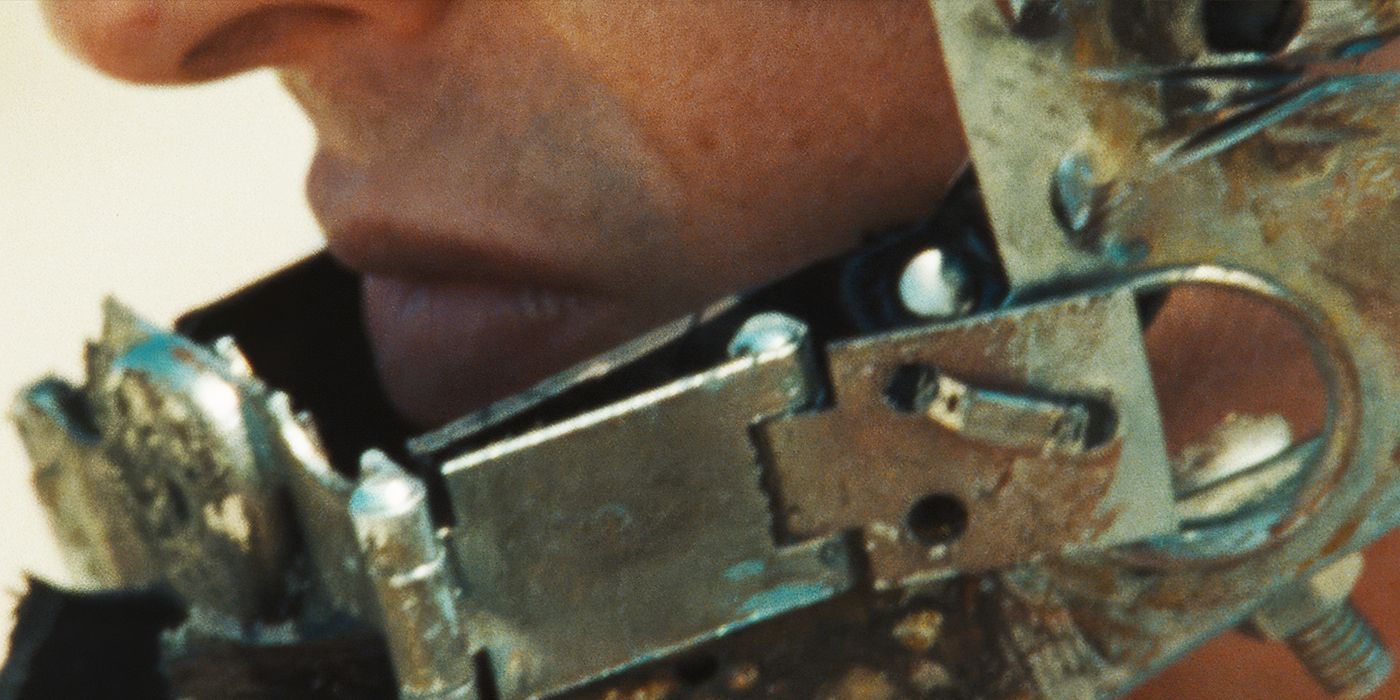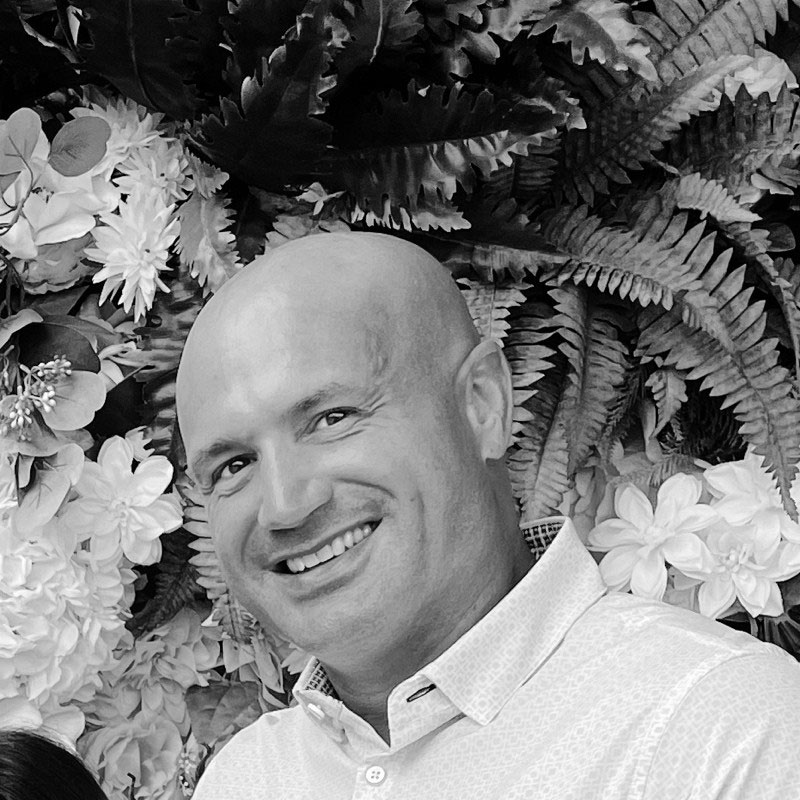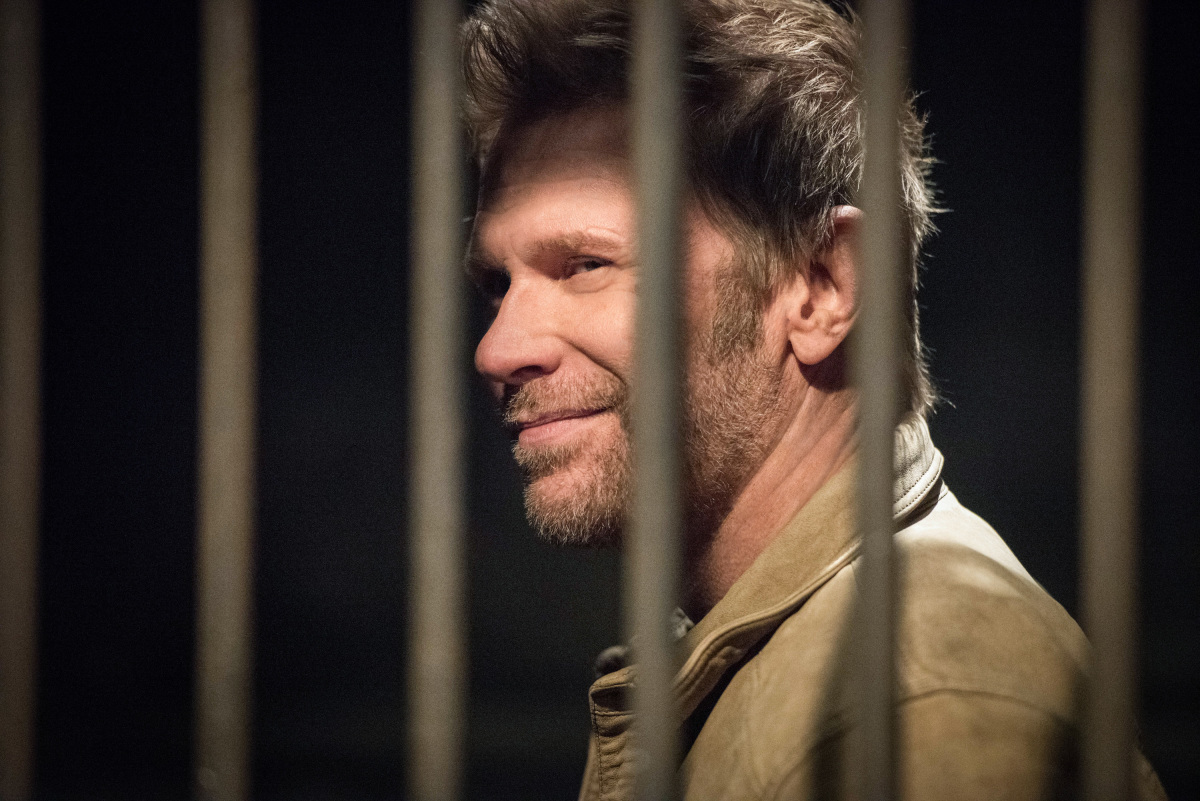The Big Picture
- Joel Potrykus discusses the importance of film criticism in understanding filmmaker’s intentions.
- He talks about resisting genre labels for his unique films and the evolution of his work as he ages and becomes more emotionally invested in life.
- Potrykus explains the personal inspiration behind the standout monologue in
Vulcanizadora
and the cathartic experience of making the film.
There is no film you’ll see quite like Joel Potrykus’ Vulcanizadora. His latest movie, which he writes, directs, and stars in, is about two buddies Marty and Derek (both of whom are previous characters from his previous film Buzzard) who go off on a trip out into the woods that is nothing like you expect it to be. In my review from when it began it’s festival run at this year’s Tribeca Film Festival, I called the filmmaker’s latest distinct vision “one of despair, death, and the desolation that comes after” which asks an essential question: What if life is just a series of accumulating bad acts and devastating mistakes where, no matter if we try to set it right, we’ll all be doomed to only just make it all infinitely worse? This cheery question and many more is something I spoke about with Potrykus before the film’s screenings at this year’s Fantasia Film Festival. We talked about his thoughts on film criticism, writing the film’s standout monologue, maintaining his voice, and that critical shot he wouldn’t cut out.

Vulcanizadora (2024)
- Release Date
- June 8, 2024
- Director
- Joel Potrykus
- Cast
- Joel Potrykus , Joshua Burge , Sherryl Despres , Bill Vincent , Melissa Blanchard , Solo Potrykus , Scott Ayotte , Dennis Grantz
- Main Genre
- Drama
- Writers
- Joel Potrykus
What Does ‘Vulcanizadora’ Director Joel Potrykus Think Of The State of Modern Film Criticism?
Collider: What has your experience been in putting something out there for people to engage with, both for this film and past films, in terms of critics wrapping their brain around them?
JOEL POTRYKUS: I went to college to be a film critic. That was a really big deal, I thought, and an important thing to express the way I loved movies. I think good criticism is there to help people understand artists’ intentions and bad criticism is “It’s good” or “I like it, I don’t like it, it is bad. Things like that. When a critic is able to watch a movie that I’ve made and help explain intention to people that may not be as film literate, on my behalf almost, I think that’s really incredible and it’s an incredible gift to be able to write that way. Most times, I assume a critic is not trying to explain the intention of the creator, but rather their own personal or academic reaction to it, which is great. But sometimes, when a critic puts their own thoughts and somehow almost nearly matches my intention, that surprises me. It just makes me feel fulfilled. I feel like it’s working, because I never know if these movies are going to work.
The first question people usually ask me if they don’t know me, or they don’t know the movies, or they don’t really know movies very well in general, is say “What genre is it?” I don’t know how to answer that without sounding really pretentious like “It doesn’t actually fit in any genre.” It’s hard for people to wrap their head around what I’m trying to do because it’s not horror, it’s not comedy, and it certainly isn’t romance. I don’t care if people like my movies or not, that doesn’t matter to me, I just hope that they can appreciate what I’m trying to do. Even if they don’t think I achieved it, that I’m trying to do something that is hopefully a little bit different than what some other filmmakers or distributors or studios are trying to do, which is create a brand, create a product, create something people are safe with and know what they’re going to get out of it. That, to me, is counterintuitive to what I’m trying to do.
How do you resist people trying to put you into a box and continue to push yourself?
POTRYKUS: I think the weird thing is that I probably don’t realize it, but I have created a, I wouldn’t, I wouldn’t say brand but a certain tone and style. It just has kind of happened organically. I think early on especially, it was like slacker, dark comedies, and this word slacker kept popping up over and over, which is fine. It’s never something that I would ever use to describe my movies or my characters. But you start to see the same words over and over in a lot of reviews and in discussions about it. I think that’s just inherent in the way people look at movies or art. They need to fit it into a niche and need to describe it quickly and succinctly so a bunch of people understand. But, for me, the movies do evolve as I get older. I think the older I get, the more emotionally invested I get in life.
I had a kid so suddenly I’m starting to see the world through my son’s eyes. He’s six now so for the last six years I’m not able to just dismiss things politically or global warmingly. I don’t think “Well, I’ll be dead in forty years.” I know think “Well, my son will be alive for the next seventy years.” So that’s a heavy trip. My characters start to think about some of those things, maybe not politics directly, but in Vulcanizadora they’re thinking about life, man. They’re thinking about other people’s lives and, to me, that was my biggest evolution while still sticking to the things I’m probably most known for. It’s more mature this time around maybe.
How Did Joel Potrykus Go About Bringing the Standout Monologue in ‘Vulcanizadora’ to Life?
With the monologue that you wrote for yourself as Derek, the central one about Hell being a place of nervousness, from where within you did that come from?
POTRYKUS: The majority of the dialogue in the movie is improvised for Derek. Like when he’s just kind of wandering around talking gibberish. But that scene, specifically, was heavily written. The cool thing is that I didn’t have to rehearse it. Because I’d written it, it’s burned in my brain. When I talk about this being a personal film and the one that’s most connected to my life, I think the obvious thing is that because I’m a father now, the film is about a character who is a father going through a lot of the terrifying things that fathers and families go through with getting separated from each other. But the one thing that I keep telling my wife that I want to avoid is our child growing into a nervous and anxious person because that’s my worst affliction. It mostly comes from making movies.
So, for me, my vision of Hell, the worst thing that could ever happen, is that feeling of anxiety for eternity. To me that was a no brainer. Light me on fire before you make me anxious for the rest of eternity. All those nightmarish things that Derek is talking about or all those anxieties are directly from me. My two biggest fears are accidentally killing myself and going to prison for something that I didn’t even realize was a crime. So that’s Marty and Derek, kind of separated into two different characters, but they’re both the things that I obsess about and think about most often when I’m afraid at night. Which then causes anxiety. That’s me speaking as a dude terrified of being nervous for the rest of my life.
Is making a film like this cathartic or is there still that nervousness? How does it feel?
POTRYKUS: This is the first movie I’ve ever made that I could describe as cathartic. I put myself, mostly subconsciously, into all my characters in my other films, but this is the first one I’m really breaking down that creep into my brain at night. Things that really terrify me. What is happening is, in little tiny ways, starting conversations with people who’ve seen the movie and relate to the fear of being nervous forever and fears about fatherhood or death. Just feeling like I’ve connected with a certain demographic of people who have kids or may not have kids or fathers or mothers, whatever it is, this is the first one that I feel invested in and I want people to actually watch and I want them to take something away. In little tiny ways, it’s starting to happen and it feels really cool which is incredibly unique for something I’ve made. This one is the first one I’ve opened up with which has been great for me.
That’s good to hear because, with a film like this, It takes a lot out of you to make it.
POTRYKUS: It’s even more difficult because you have less people to help you solve all the problems. Every single element of this movie I have to worry about, make sure to double check that it’s been done, that we’ve thought it through, we’ve looked at the weather, we have the right props, we schedule the right flights, and we got the hotels. It’s just a ball of overwhelming amount of details. The creative stuff, you hope that doesn’t suffer because you’re worrying about if we filled up the tank to get the location the next day.
That’s not something you hear about in big profiles, but that stuff matters, and it’s all falling on your shoulders.
POTRYKUS: Sometimes I do fantasize about like “Ah, going to the dark side and making a big studio movie where you have eight producers who handle all that and five assistant directors.” Then again, at the same time, that might be even more nerve wracking because there’s so many people looking over your shoulder and judging you or wondering if you’re making the right decisions or wanting to have some kind of creative input on it or have a say on how you tell your story at the end of the day. So it’s like, give up control to not have to worry about things like weather forecast or hold onto every creative decision? But that may also mean you have to figure out whether you have enough money to make your movie.
There is that you get to pick your own collaborators, like how you’ve worked with cinematographer Adam J. Minnick before, and developed a kind of rhythm together.
POTRYKUS: Oh exactly. If somebody is telling you who can work with or not, it’s like being in a band and someone’s like “We love your first album, but you can’t use your drummer anymore, you have to use this kind of guitar, and no more harmonies here.” It’s just gutting to me. I can’t think of moviemaking any other way than to work with the people I trust and trust me.
That idea of “We love everything you’re doing, now let’s change all of it, take it away, and make it something different” is wild.
POTRYKUS: It’s so real man. It just totally happens to so many dudes I know. I just cannot get into that system. It terrifies me.
How Does Joel Potrykus Approach Editing a Film Like ‘Vulcanizadora?’
You serve as your own editor and, I was curious, when is you feel it’s the right time to cut? I think about the extended monologue and how that is cut together in particular.
POTRYKUS: That’s a great question, that’s a really great question. It sounds silly, but it’s 100 percent instinct in the moment. I just want to look at somebody else for a second. There’s that scene in Pearl, which everybody praises where Mia Goth has that big monologue at the end, and it’s great and it shows off her performance. I love Pearl, but I just wanted to see the other person a couple of times because I want to see the audience. The other characters is the audience and I want to see the people around me. I want to see how they’re seeing Pearl in that moment. I just feel like I’m the audience when I’m the editor and do I want to see what the other character is thinking to see if I relate. Is their expression happy? Distant? Confused? It’s just purely an instinct thing as seeing the film through the eyes of the audience. It’s just me as an audience member, in my gut, rhythmically, I need to see something else in that moment. I put an endless amount of thought into cutting, but there is really no theory behind it per se.
You do it based on feel, based on what serves the scene, and what serves the moment.
Exactly. At the end of the day, I’m just making these movies for me. I don’t have huge budgets where I have to appease investors or make a certain return at the box office. I just want to make cool shit that I would want to see. There’s a shot in the movie of three or four minutes of black snake fireworks going off and the camera doesn’t move. I don’t think I’d be able to get away with that shot if I was working with a big studio or big company. I think that’s one of the first things they’re going to cut in half or cut out completely. For me, as an audience, this is great, this is mesmerizing. It says something, I’m not gonna be explicit about it, but this whole shot needs to be in the movie.
Vulcanizadora screened at the 2024 Fantasia International Film Festival.








































































